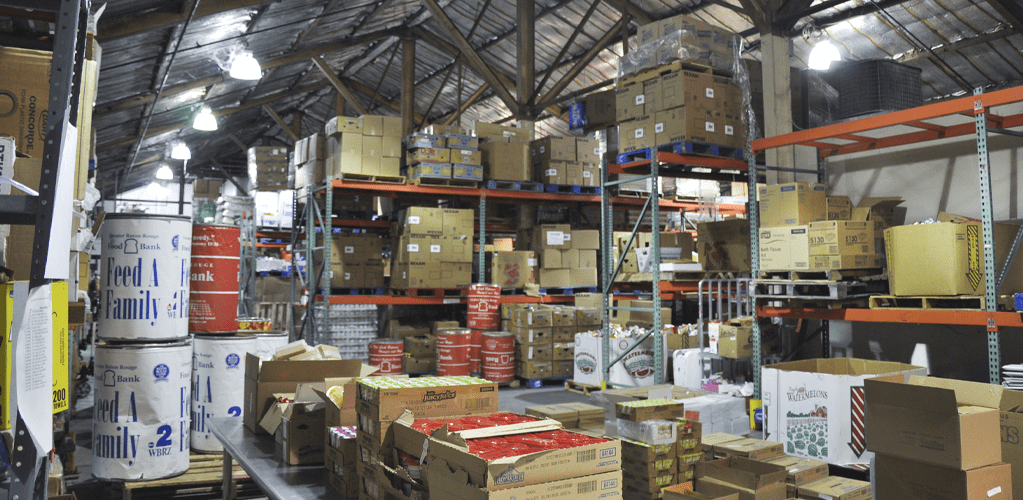Basic income could put food banks out of business
Food inequality arises from poverty, pushing low-income households toward unhealthy diets with lasting health impacts. Universal Credit has driven food bank reliance, while Universal Basic Income (UBI) could effectively address poverty and related issues.

by DAVID BECK —
Lecturer of Social Policy at the University of Salford,
Coordinator at UBILab Manchester,
Co-chair of UBILab Food.
TL;DR | Highlights from this story
● Lower-income individuals often buy cheaper, less nutritious food, facing long-term health costs.
● Monthly payments have created insecurity, leading to increased food bank dependence across communities.
● A Universal Basic Income (UBI) could prevent crimes related to poverty, reducing associated economic and social costs.
● It is time to address poverty’s root cause, and a UBI has the potential to end food poverty.
F ood inequality stems from poverty, forcing low-income households into cheap, unhealthy diets with long-term health consequences. Universal Credit has increased food bank reliance, revealing systemic poverty issues. Universal Basic Income (UBI) could be a “silver bullet” to tackle poverty and related issues like crime.
David Beck is a lecturer of social policy at the University of Salford, a coordinator at UBILab Manchester, and co-chair of UBILab Food. He’s interested in understanding how a universal basic income (UBI) could end the need for food banks. Here, he tells Beyond Trafficking and Slavery (BTS) that the UK anti-hunger industry has failed and it’s time for radical solutions.
This interview has been edited for length and clarity.
Beyond Trafficking and Slavery (BTS): What do we mean by food inequality?
David Beck: If you’ve got enough income, you can have food that’s good for you and healthy. If you don’t have enough income, then you’re usually left with the stuff that’s cheap. Inexpensive food is usually filled with salt, fat, sugar, and isn’t very good for you. It can lead to other health implications in the future.
BTS: So the poverty premium of food is that you save money by buying cheap food now, but end up with expensive, negative health outcomes later.
David: That’s exactly what it is. If you’re on a low income, food is expensive and healthy food is more expensive. If you’re on a very low income and you’ve got children, for example, young children may not want to try healthier foods – they spit out the broccoli. If you’re struggling, you’re going to avoid buying broccoli because you assume it will be wasted.
Restricted income usually results in a restricted diet. The latter is a result of poverty.
BTS: Can you give us a sense of the English food bank landscape? I heard this country now has more food banks than McDonald’s.
David: We do. In 2012, the Department for Work and Pensions brought in a new policy called the Welfare Reform Act. Iain Duncan Smith was the work and pensions secretary at the time, the chancellor was George Osborne and David Cameron was the prime minister. The act ushered in universal credit and the bedroom tax.
Pre-universal credit, people would have been paid weekly, fortnightly or sometimes monthly depending on how their particular assistance was set up. The different pots of money coming in at different times created a trickle effect for the recipient.
Universal credit is paid monthly. This was supposed to nudge people into thinking, “Well, if I can handle this money every month, then I’ll be OK. I can go and get a job because that pays monthly as well.” But it made people feel very insecure. People struggled with it immediately.
What happened then was the charity sector, led by churches, came in as food banks. That’s when they really started to ramp up.
BTS: I can see why collapsing benefits into a single, monthly payment would theoretically increase stability. It makes intuitive sense. So what went wrong? Was there just some crunching gears at the beginning because transitions are hard? Or did universal credit create sustained instability?
David: Sustained instability. Initially, universal credit was paid six weeks in retrospect. That made people think straight away that: “I’ve got no money for six weeks. I’ve got to pay rent, mortgages or I’ve got to feed my kids. How am I going to survive this?” The instability was built into the system right from the get-go.
So they started giving out advance payments, but they were structured effectively as a loan that you had to pay back. The government reclaimed that advance by reducing future payments, so for the first year or two, your benefits were never at the maximum level. That had a similar, destabilising effect.
BTS: This then led to a sustained rise in food banks?
David: It continues to this day. One of the poorest regions in Wales is Rhyl. Right along the north Wales coastline, a little seaside town called Rhyl. It’s got more food banks than it’s got supermarkets.
BTS: Seems to be quite the false economy. We’re willing to pay to run food banks, but not willing to raise benefits so that food banks become unnecessary.
David: Well, the government doesn’t fund food banks. There are some local authorities which will put money aside and use it in collaboration with food banks. But if the government starts to fund food banks, we’ll have reached a level of institutionalisation where they are a completely normalised part of our society.
BTS: Can you tell us a bit more about how we got to where we are now?
David: Let’s bring it back to the 1940s, when the politician William Beveridge was working to build a social security system. Like the NHS, the idea was to be there for everybody when they needed it. That version of the system continued until the 1980s. Then Margaret Thatcher, influenced by Reaganomics, declared her intention to dismantle it. She started to sell off parts of the system and privatisation crept in.
That process continued after she left office in 1990. Tony Blair came to power in 1997, but he didn’t change much because he was kind of a Thatcherite himself.
Fast forward to 2010. David Cameron enters the prime minister’s office on the heels of one of the worst recessions the country has ever seen. He comes in with an idea, which goes something like: “I’m going to solve this debt crisis, and the people who are causing the debt are those people claiming social security. Forget the bankers who created the debt in the first place – it’s these people who are sat at home. The ‘benefits scroungers’”.
This is why I try not to use words like benefits or welfare. I call it social security because the other terms have been made into almost dirty words. Social security is about us all together.
That’s how I got really interested in the idea of a basic income. For me, that’s real social security.

— If you don’t have enough income, then you’re usually left with the stuff that’s cheap, usually filled with salt, fat, sugar, and isn’t very good for you.
BTS: How do you see UBI fitting into more holistic, full-spectrum social security reform? It’s a powerful potential tool, but it’s unlikely to be a silver bullet.
David: I have heard lots of people say it isn’t a silver bullet, but I’m a utopian and very optimistic by nature. I think it could be a silver bullet.
There are so many extra things that people don’t factor in when we think about a basic income.
Take crime. We know burglary numbers rise towards Christmas, which indicates that it’s related to the extra money needed around the holidays for food, gifts, etc. People do commit burglary because of poverty – not always, but often. So if we lift individuals out of poverty by giving them a basic income, the number of burglaries should go down.
Burglaries are expensive. They cost the victim, their family, and the economy time and money. Apart from direct damage and/or loss of property, there’s time off work, maybe physical and mental health implications, etc. So straight away, the night a burglary happens, it is costly.
Then there’s the investigation, the policing, the courts, the judiciary, the sentencing, the jury, and the incarceration. That’s more time off work, more money spent. Then that person leaves incarceration. It’s hard for them to get a job and reintegrate back into society, making reoffending more likely. Probation is another expense for the state – monitoring this individual for a year or so isn’t cheap.
So just this one act of burglary comes with a massive cost. Lower the chances of someone committing burglary and you’re potentially standing before an equally massive saving. This is why I do see basic income as a silver bullet. There are so many echo effects.
With basic income we’re taking the end cost of consequences and bringing it to the front of people’s lives as prevention. It would be so revolutionary – we’ve never had policies like this.
BTS: What are the specific challenges of campaigning for UBI in a highly neoliberal context like the US or the UK, and how do you respond to them?
David: There are many, but let’s start by no longer calling it welfare or benefits. Once you etymologically change it in people’s minds you’re no longer dealing with ‘scroungers’, ‘laziness’, and those other identities. I think if we start to call it social security again it will etymologically link to the idea of social – ‘that’s me, I’m part of this’ – security – ‘oh yes, I’m receiving security’. I think that’s the first place to start.
The world’s first food bank opened in 1969 in Phoenix, Arizona as a temporary measure. It’s still open today. What we’re doing in the UK is we’re looking over the pond at what’s happened and thinking: “That’s a good idea, actually. We could really solve this problem of food poverty in the UK if we just have what they’ve got.” And so we’ve imported this idea of food banks.
But if food poverty organisations want to really stop food poverty, basic income would close every food bank overnight. People would no longer need a food bank because they’d have an income.
BTS: Where do you see coalitions forming to push for these reforms, or where should they be forming?
David: Charities need to understand that a basic income is the answer they’ve been looking for. I don’t care whether you’re a food poverty charity or an anti-poverty charity. We’ve got so many charities that have existed for 100 years or more in this country, and their position has always been: ‘We are here to end poverty’. But they’ve been doing it for over 100 years.
Andy Fisher wrote a fantastic book called Big Hunger, which looks at the rise of the hunger-industrial complex. We’ve got all these charities that exist to tackle hunger, but they’re also working very closely with organisations that directly enhance food poverty. Supermarkets paying low wages, for instance. Many supermarket employees make use of food charity because they’re on minimum wage, which is being paid by a company that is also involved in donating to food charity. Essentially the supermarket donates the food, pays low wages, and their staff then eats the donated food. Why not just pay them more?
It’s contradictions like this that undermine the charities’ mission while also perpetuating their existence – hence the reason for calling it the hunger-industrial complex. If they actually value ending hunger more than their own existence as organisations, they need to find new bedfellows and start advocating for a whole different set of solutions.
That means stop treating the symptoms. We treat the symptoms of food poverty by giving out free food. But that doesn’t stop their poverty. It feeds people that day and that day only.
Treat the disease instead. Poverty is the disease, and we’ve got a cure for poverty.
It’s money. Just give it to them.

GOING FURTHER
Are there more food banks than McDonald's restaurants in the UK? | FULL FACT
Big Hunger, by Andrew Fisher | MIT PRESS
What Is Universal Basic Income? | IMF
Universal basic income: What it is and why people will be given free money for doing nothing | SKY NEWS
Everywhere basic income has been tried, in one map | VOX
Money for nothing: is universal basic income about to transform society? | THE GUARDIAN
Sam Altman-Backed Group Completes Largest US Study on Basic Income | BLOOMBERG





[Read our Comments Guidelines]